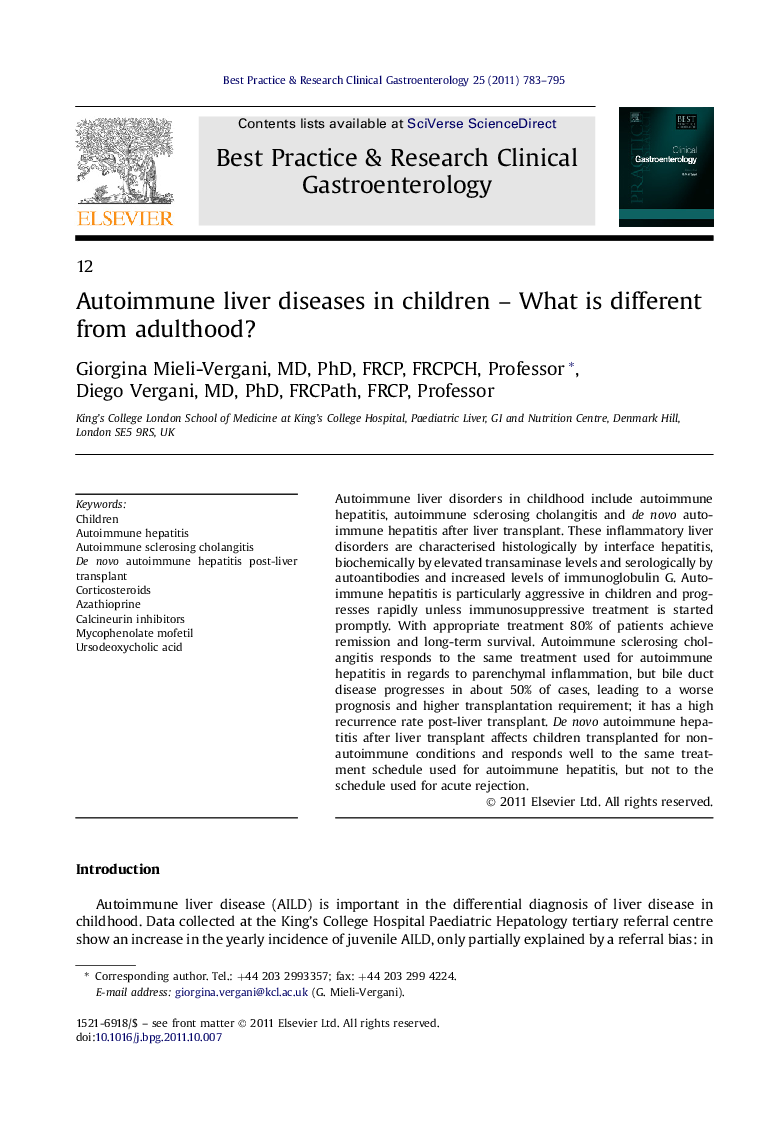| Article ID | Journal | Published Year | Pages | File Type |
|---|---|---|---|---|
| 6086519 | Best Practice & Research Clinical Gastroenterology | 2011 | 13 Pages |
Autoimmune liver disorders in childhood include autoimmune hepatitis, autoimmune sclerosing cholangitis and de novo autoimmune hepatitis after liver transplant. These inflammatory liver disorders are characterised histologically by interface hepatitis, biochemically by elevated transaminase levels and serologically by autoantibodies and increased levels of immunoglobulin G. Autoimmune hepatitis is particularly aggressive in children and progresses rapidly unless immunosuppressive treatment is started promptly. With appropriate treatment 80% of patients achieve remission and long-term survival. Autoimmune sclerosing cholangitis responds to the same treatment used for autoimmune hepatitis in regards to parenchymal inflammation, but bile duct disease progresses in about 50% of cases, leading to a worse prognosis and higher transplantation requirement; it has a high recurrence rate post-liver transplant. De novo autoimmune hepatitis after liver transplant affects children transplanted for non-autoimmune conditions and responds well to the same treatment schedule used for autoimmune hepatitis, but not to the schedule used for acute rejection.
